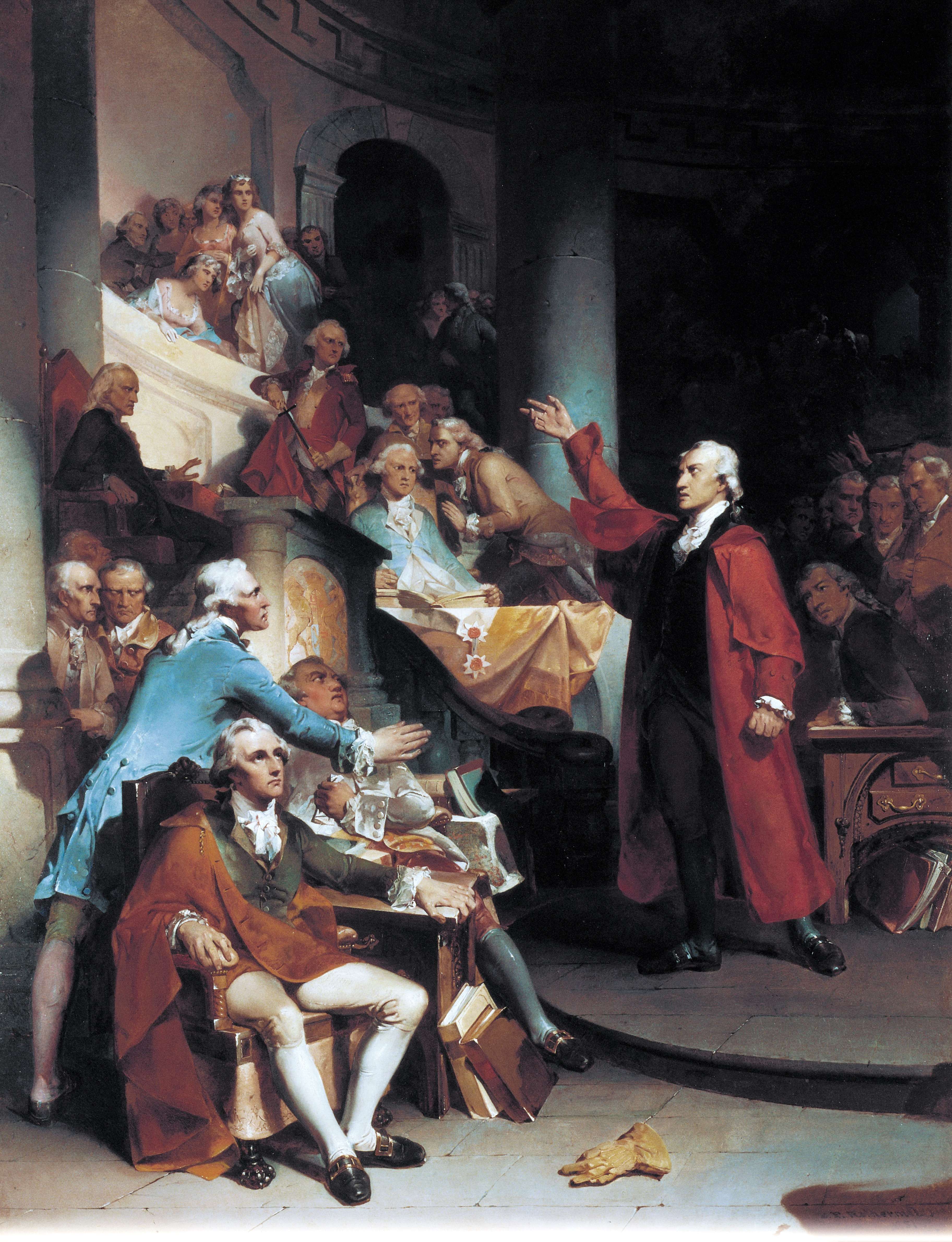That a Revenue be raised in Your Majesty’s Dominion in America defraying the expenses of defending, protecting and securing same...”
– Preamble to the Sugar Act 1764
”Among colonial ports, Boston was locked in the deepest recession when news arrived of two revenue measures, the Sugar Act of 1764, and Stamp Act of 1765.

- Patrick Henry Memorial Foundation
The Virginia House of Burgesses During the Stamp Act Announcement
The Virginia House of Burgesses
was in session when the Stamp
Act was announced. Patrick
Henry became famous for his
vehement protest. He may have
been infl uenced by arguments
circulated by Samuel Adams
against the Sugar Act the previous year. Henry said that colonial legislatures, not Parliament,
had the right to levy taxes — a
theme that resounded across the
American colonies.
- Courtesy of the Bostonian Society
Stamp Act, 1765
The Stamp Act was a formidable document – 13,000 words, in 63 sections, each marked by a Roman numeral. It seemed that nearly every piece of paper required a stamp: real estate transactions, wills and other legal documents, newspapers, broadsides, almanacs, bills of sale, liquor licenses, even playing cards. The courts could not open without them nor would ships be allowed to sail. Ominously the penalty for making counterfeit stamps was death “without benefi t of clergy.”
- Massachusetts Archives
In 1755 the Massachusetts Assembly approved a Stamp Tax to fund the French and Indian War. Designs are described in this proclamation: a schooner with the motto, “Steady: Steady,” a Pine Tree with the words “Province of the Massachusetts,” and a cod fish with the words, “Staple of the Massachusetts.” There was some grumbling but acceptance because the tax was approved by the Massachusetts legislature.
Sugar Act, 1764
The Sugar Act especially damaged Boston merchants. Many depended on the importation of molasses – produced by slave labor in the West Indies – for the production of rum. By 1750 Massachusetts exported two million gallons per year. While the Sugar Act reduced the customs duty on imported molasses, a crack down on smuggling brought a sense of harassment to Boston merchants. It also produced a sharp decline in trade.
Ruminations on the Sugar Act
New Englanders consumed a million and a quarter gallons of rum each year – the equivalent of four gallons for every man woman and child. Rum also played a central role in the African slave trade

